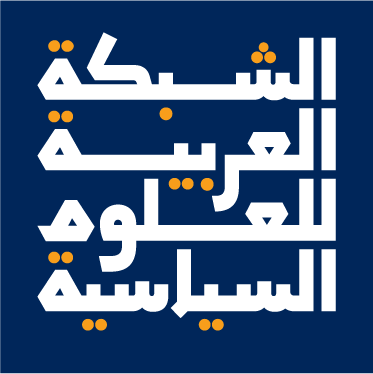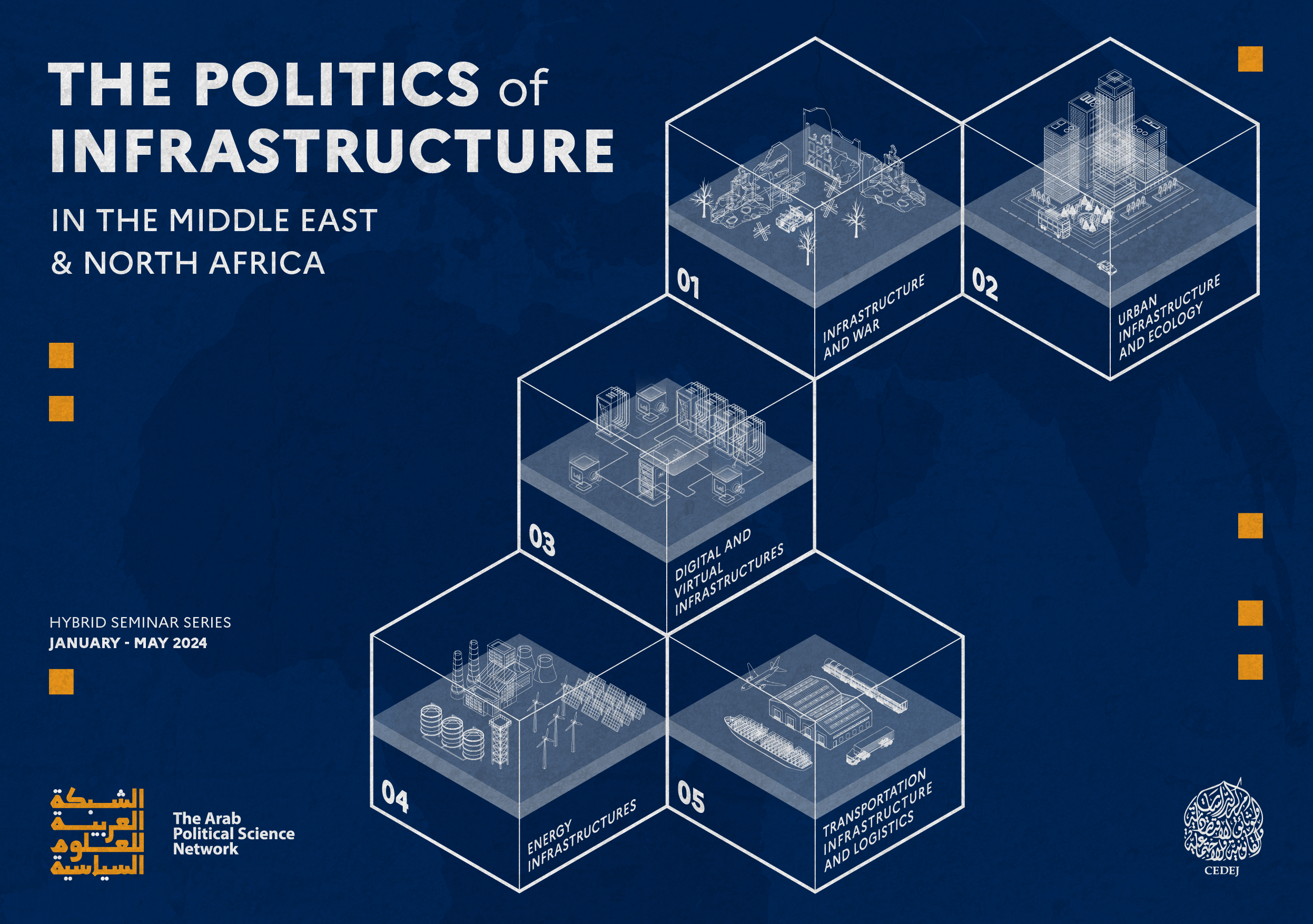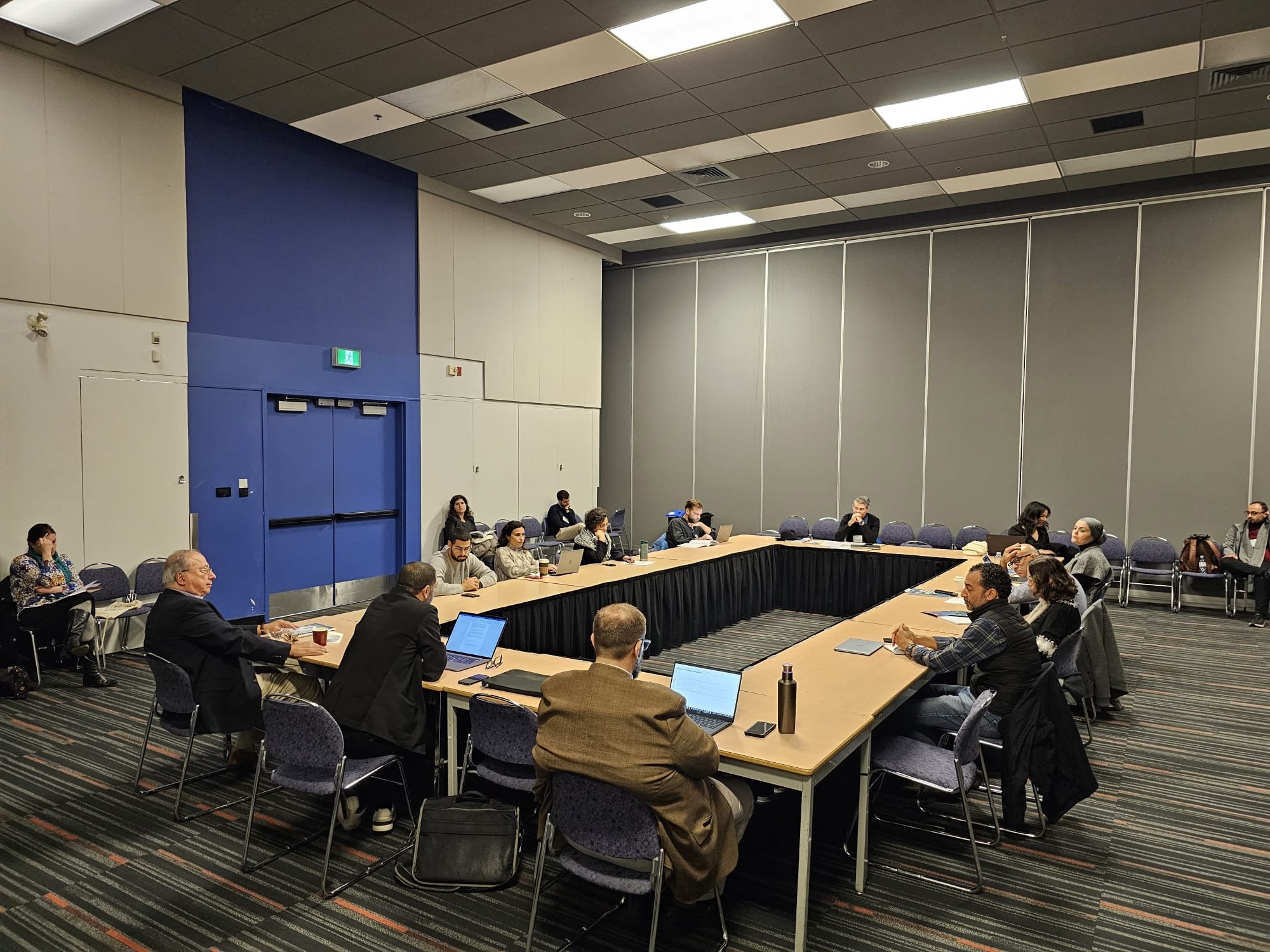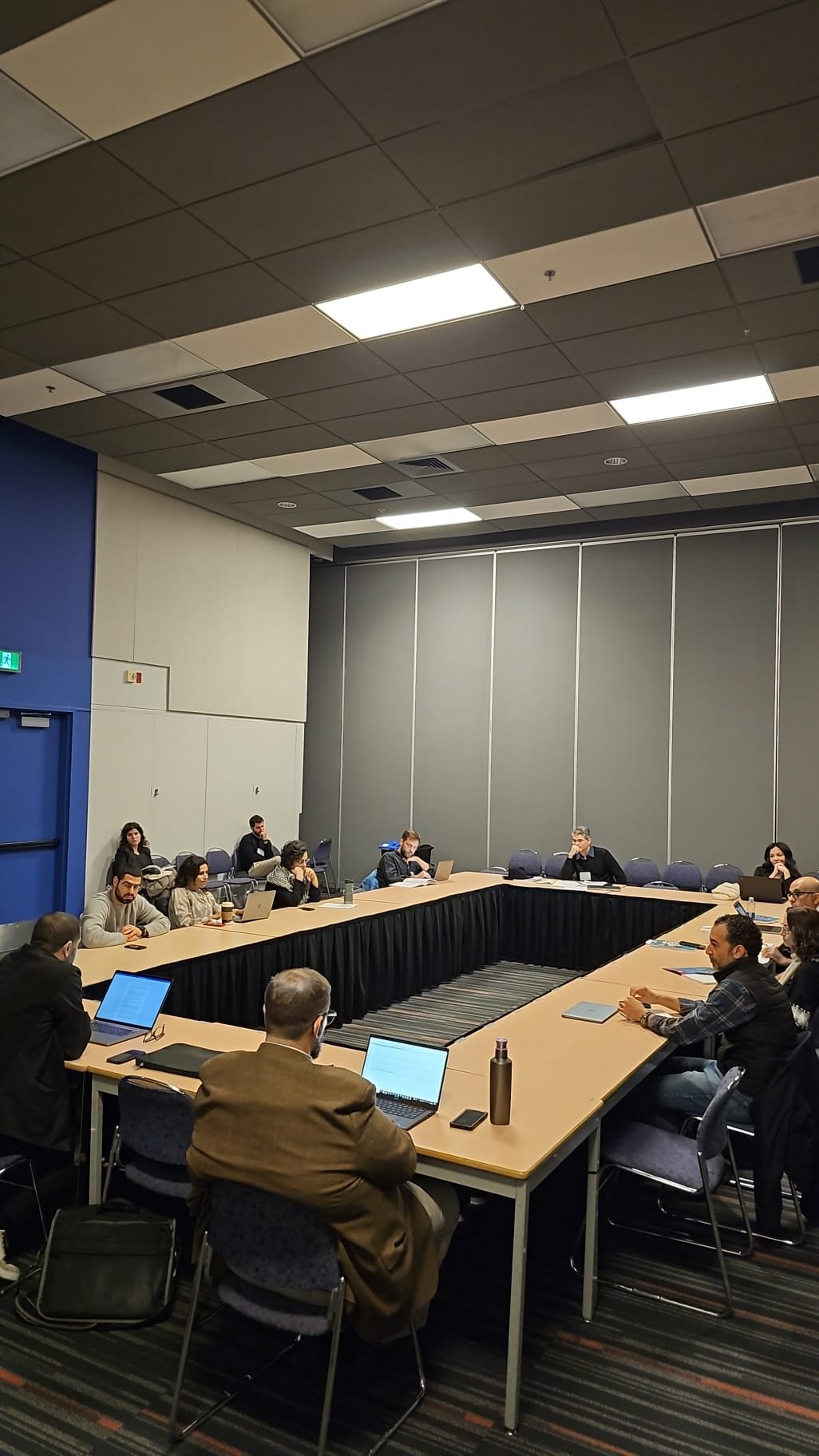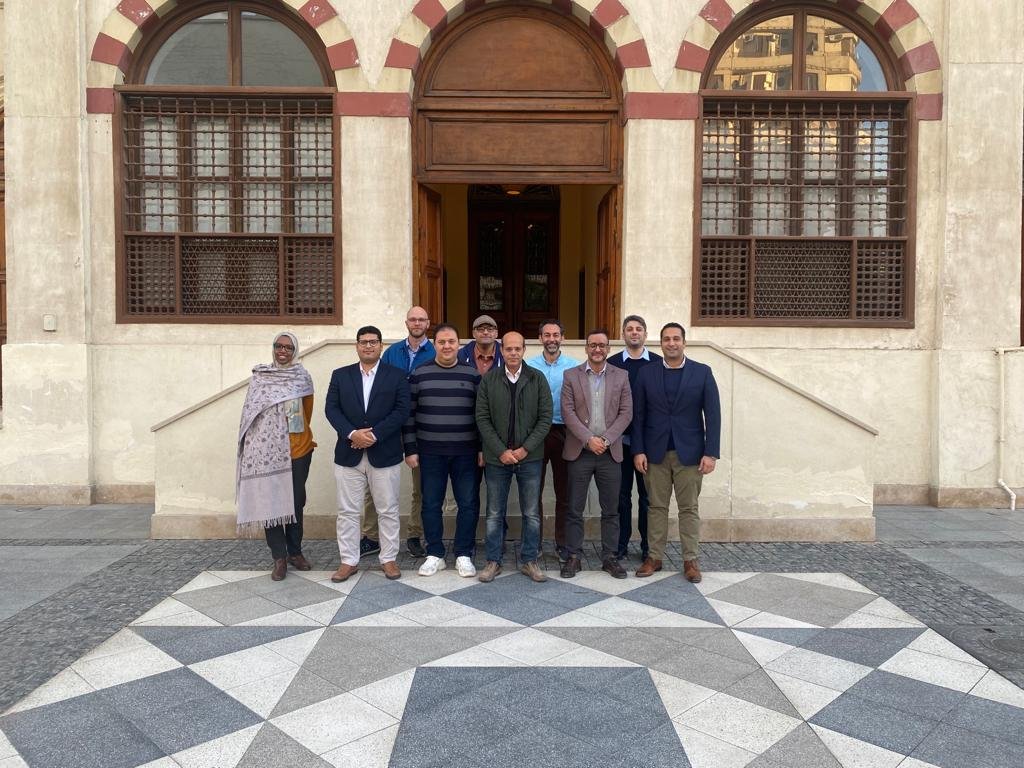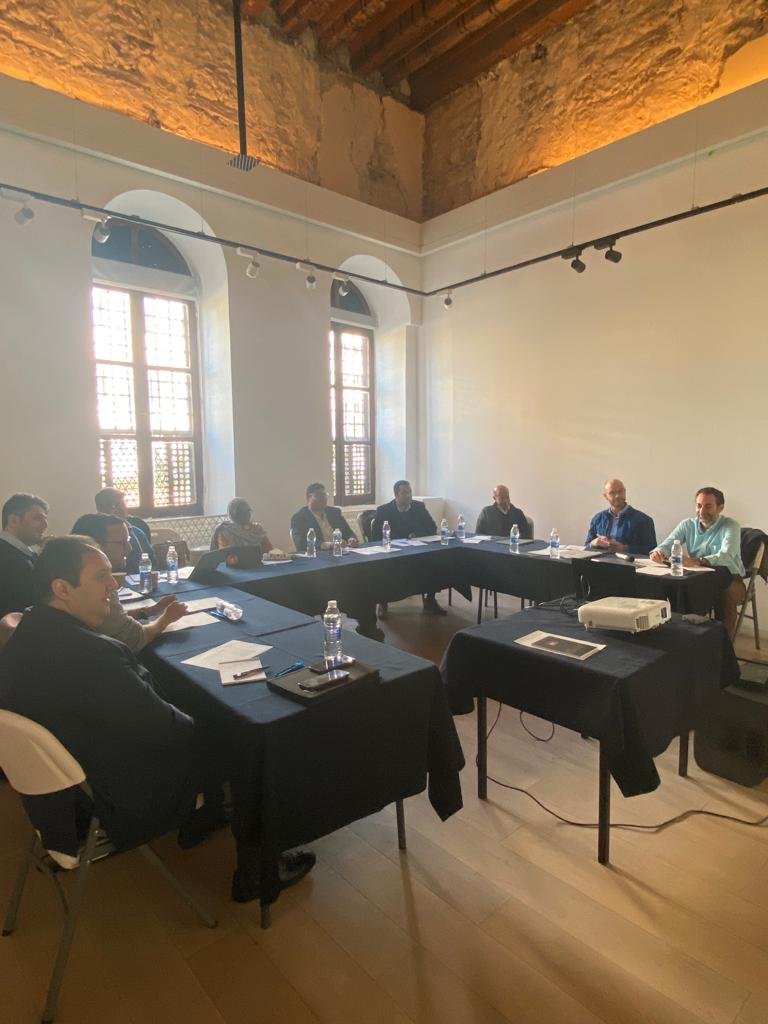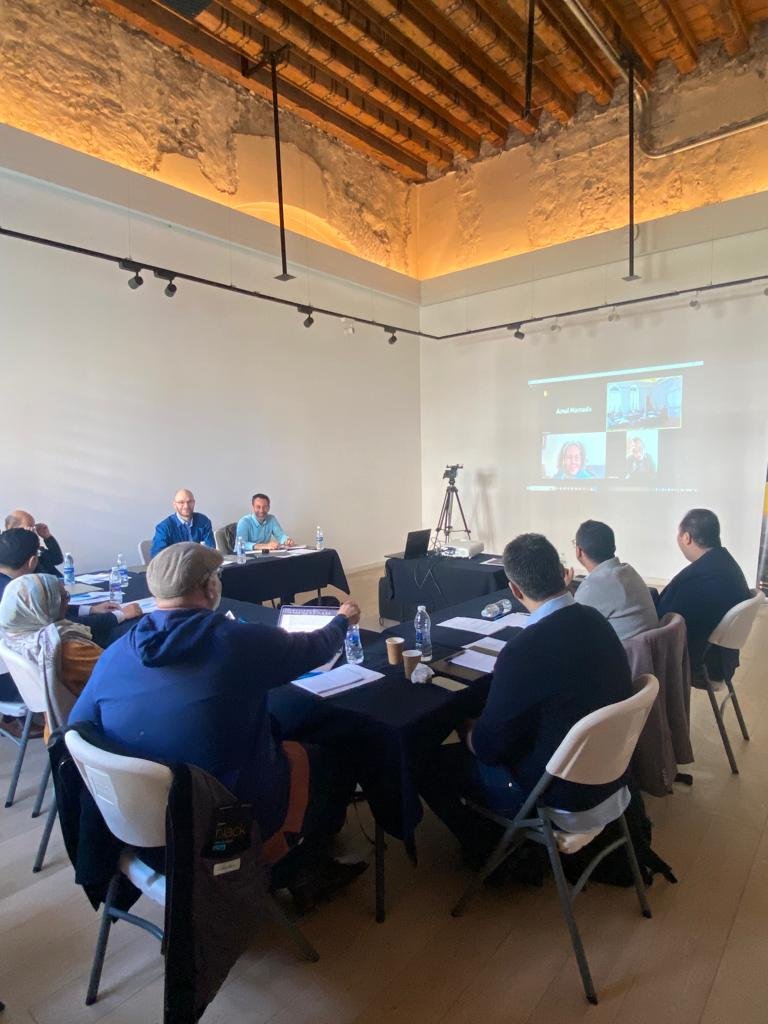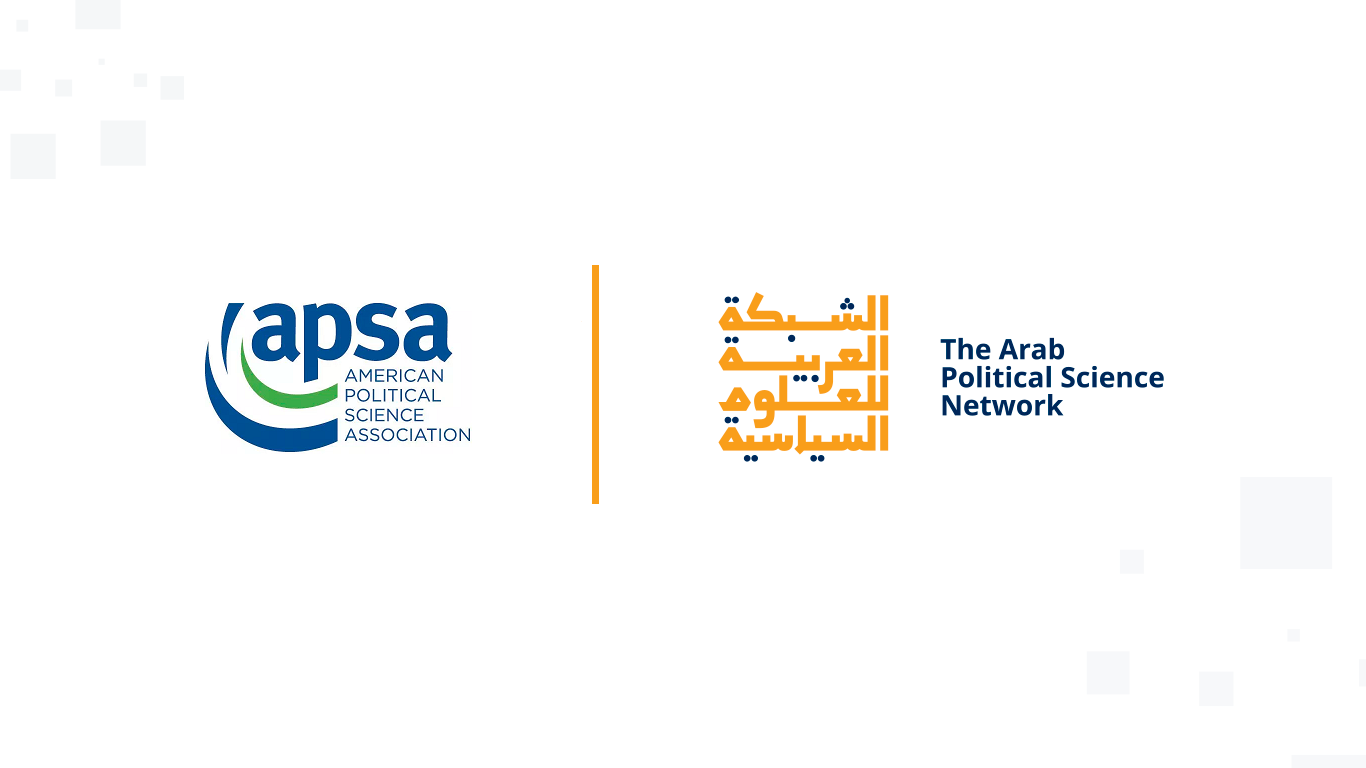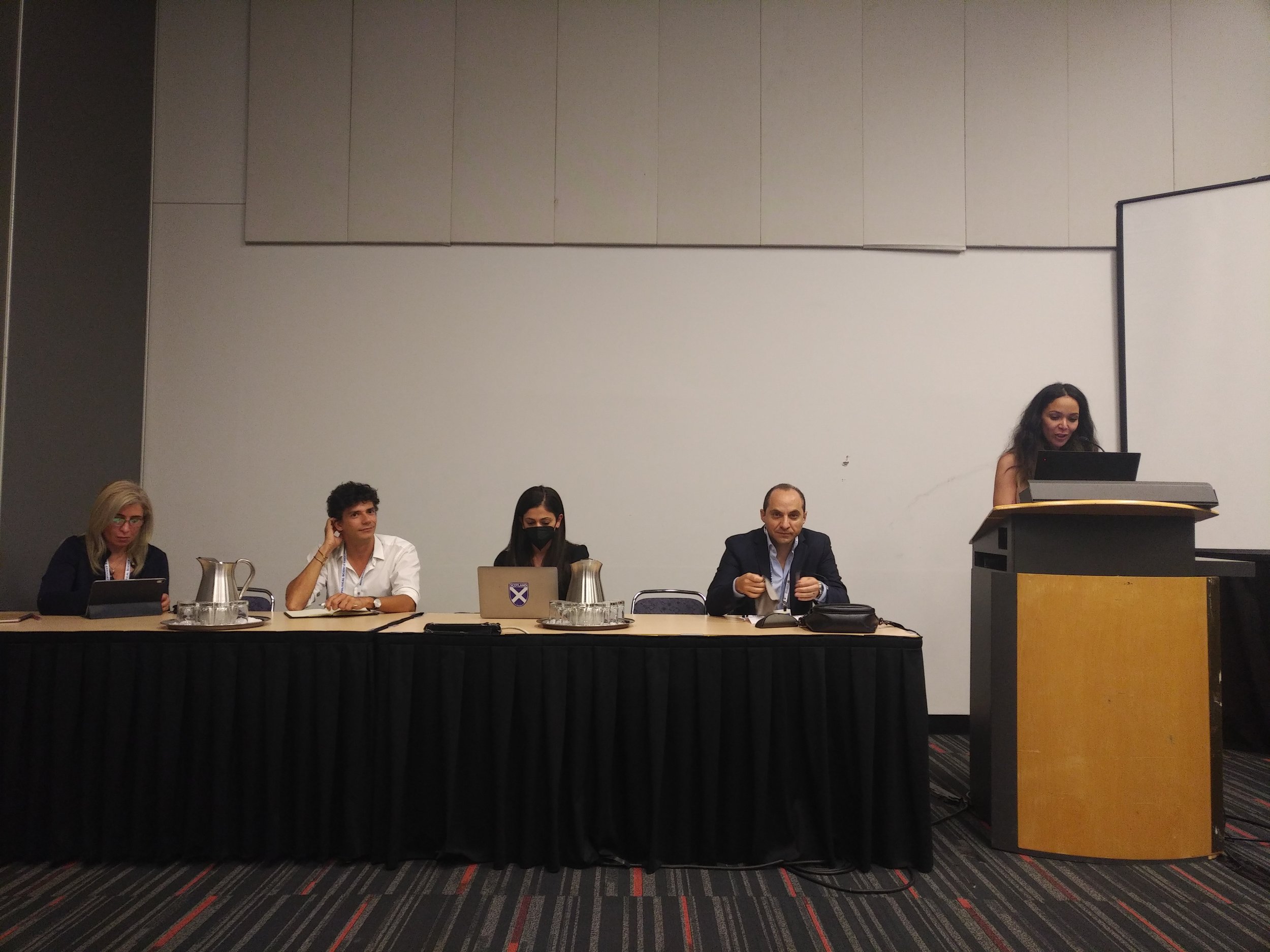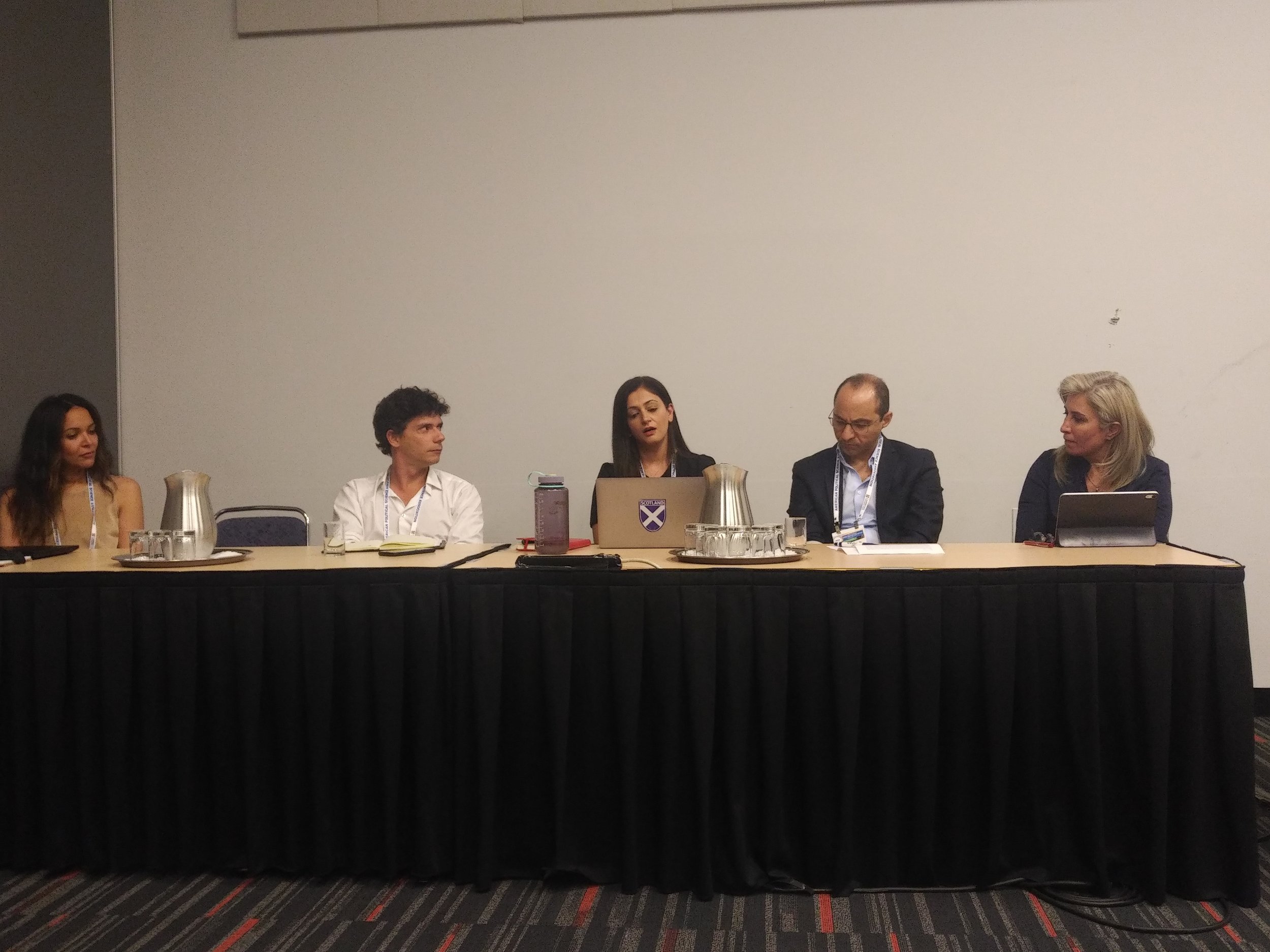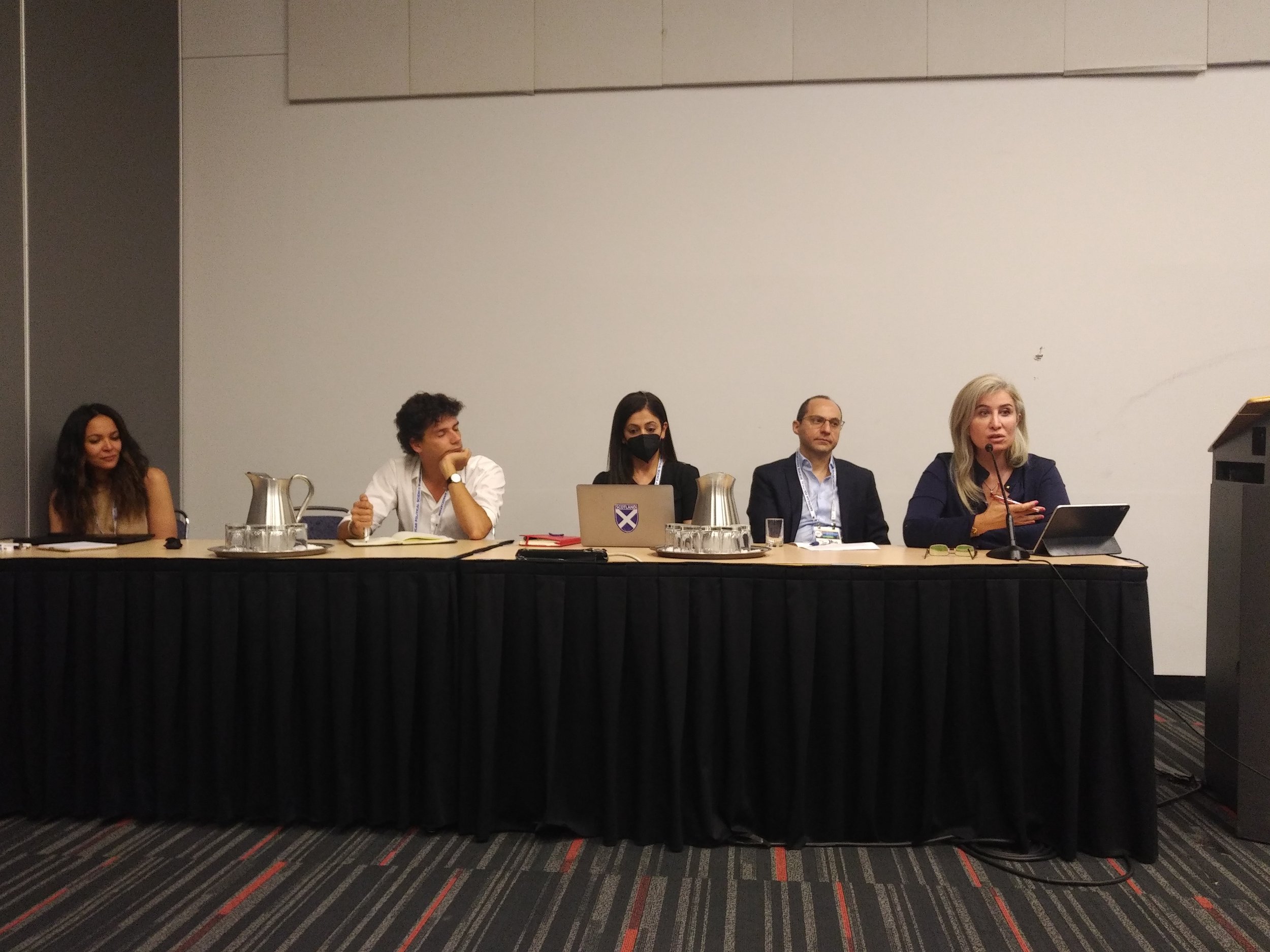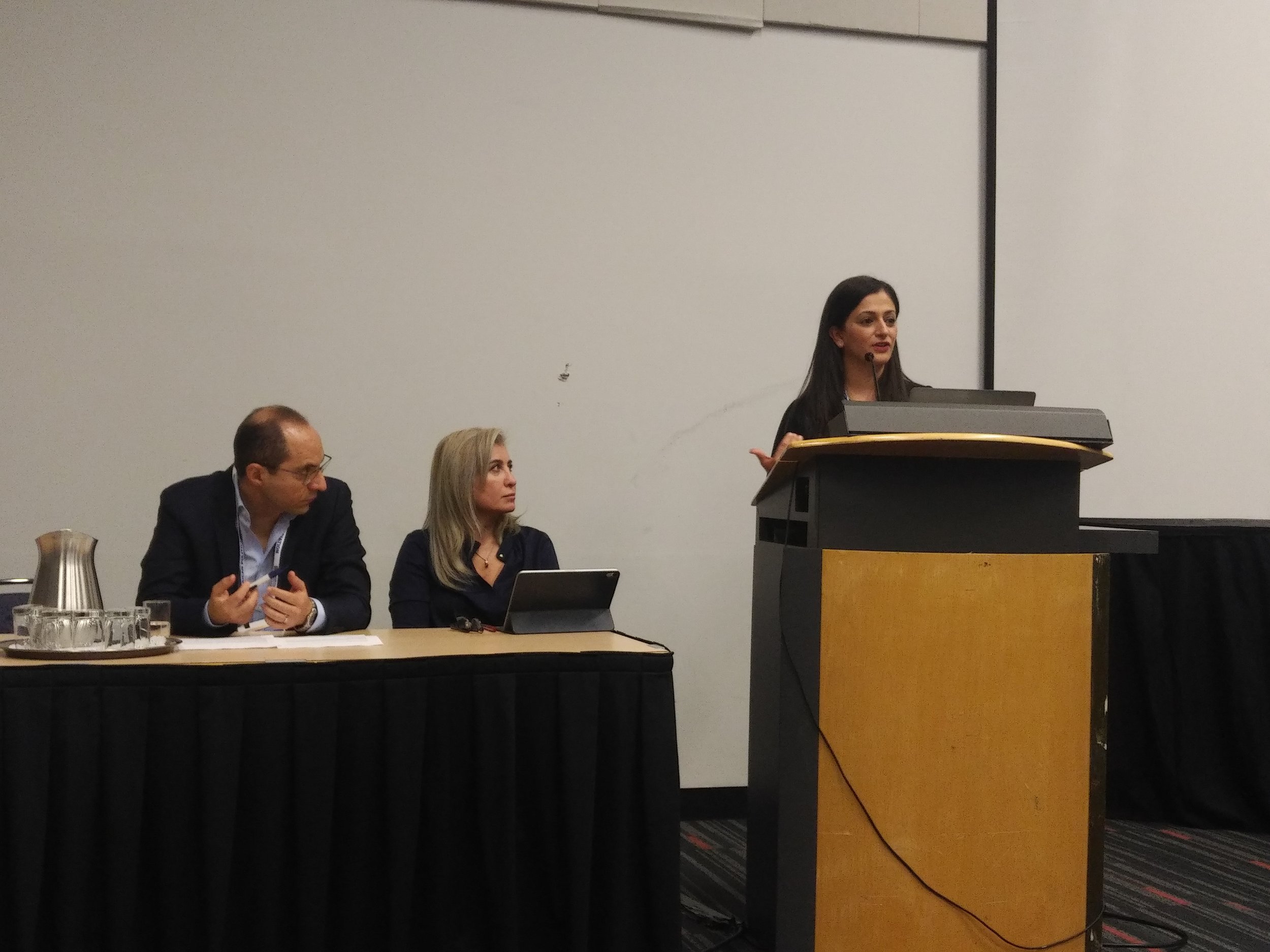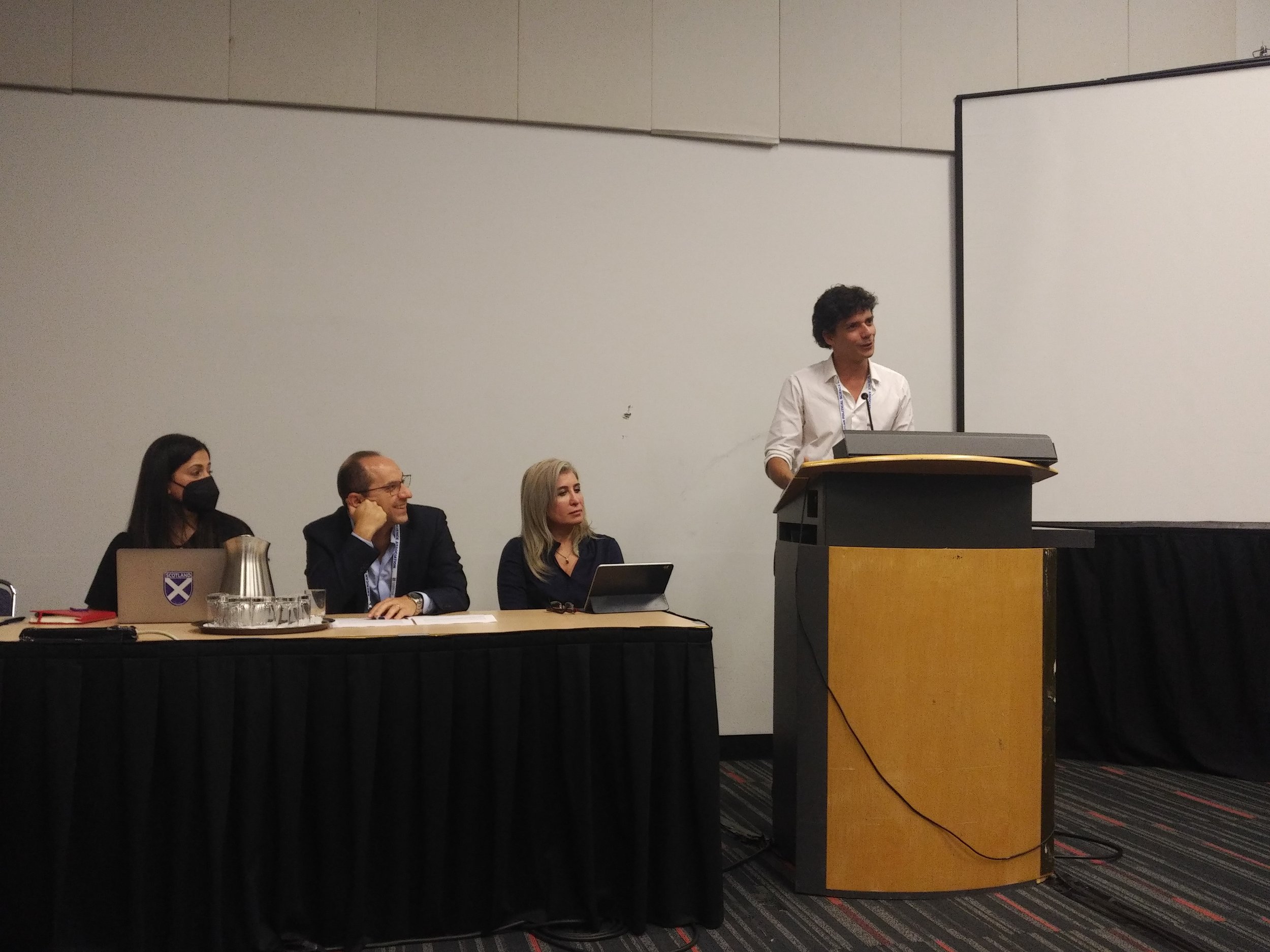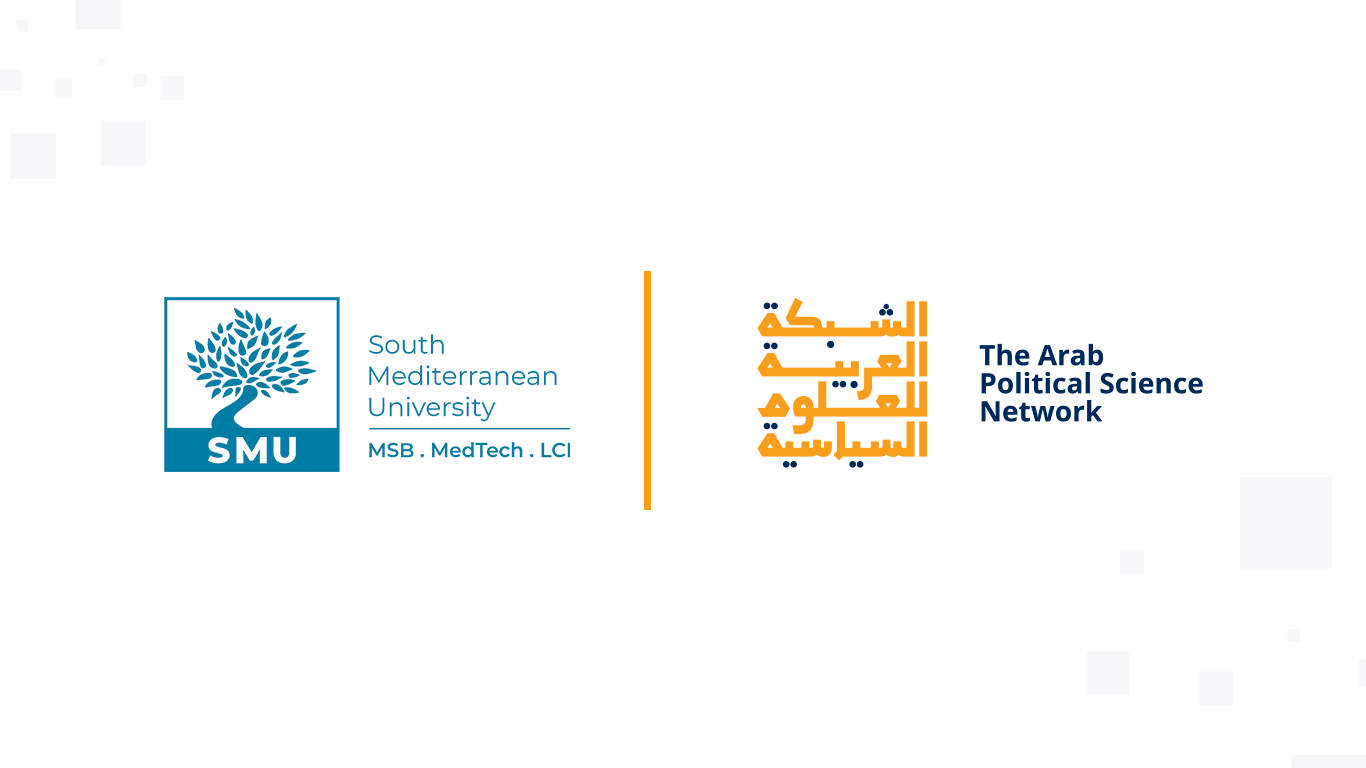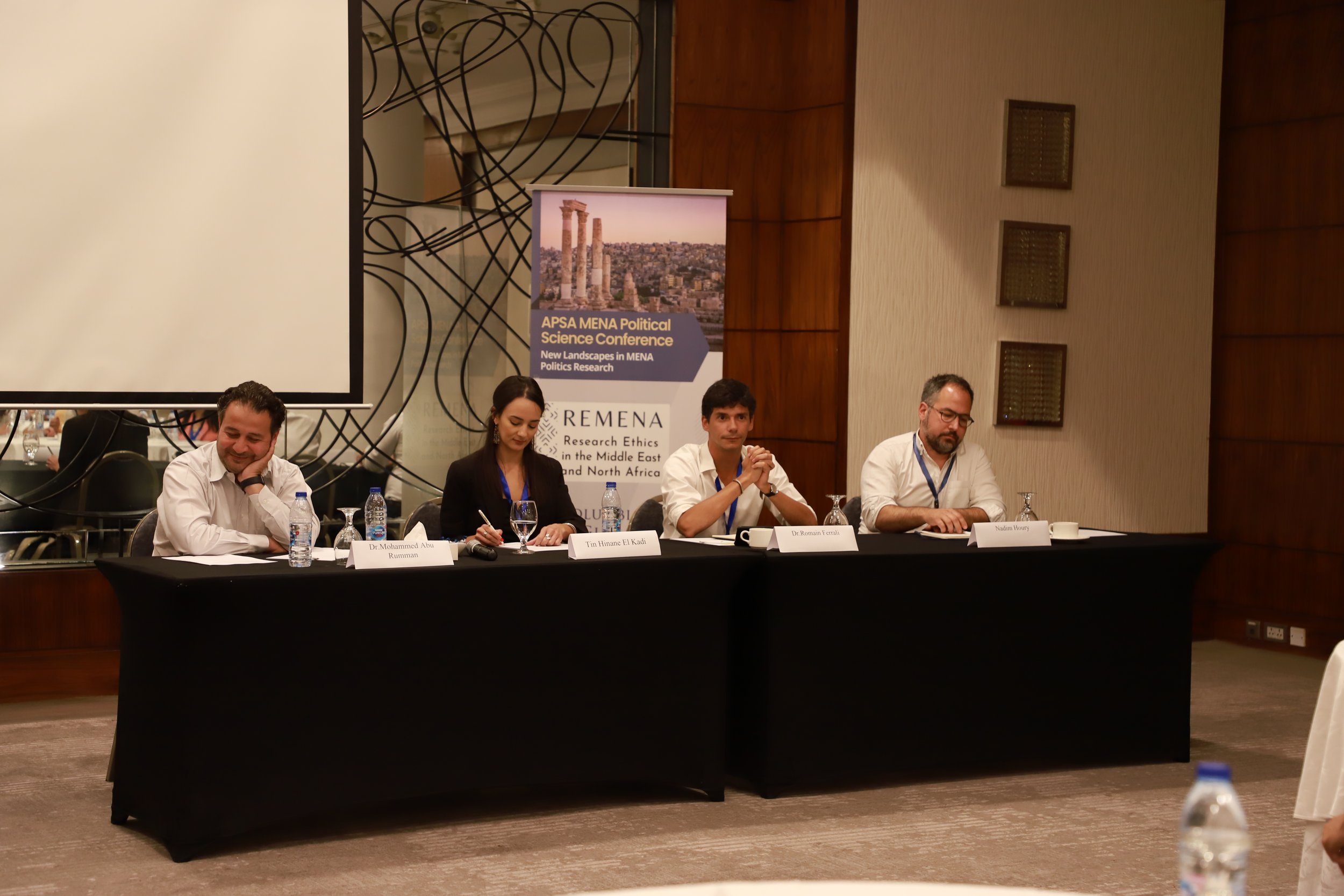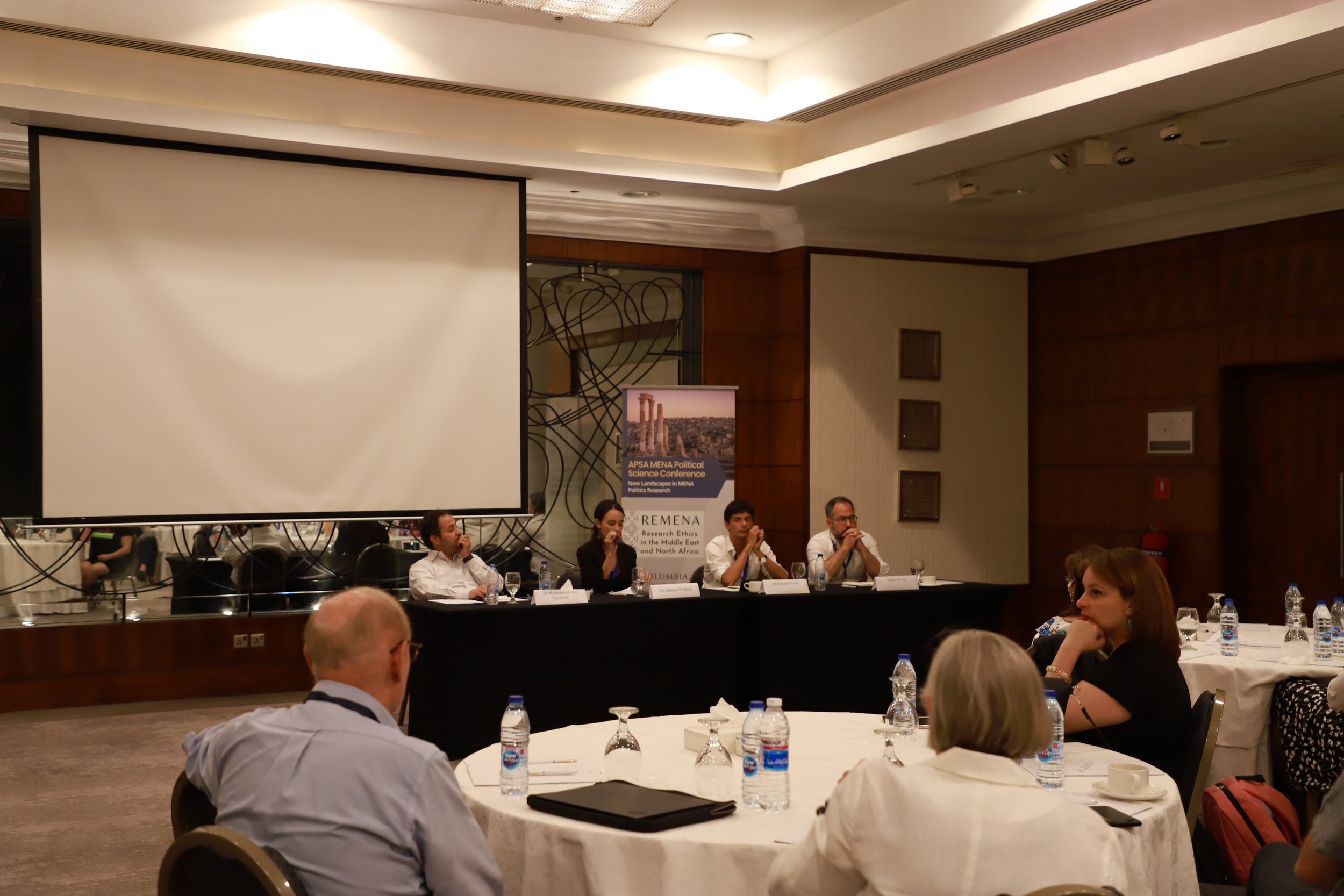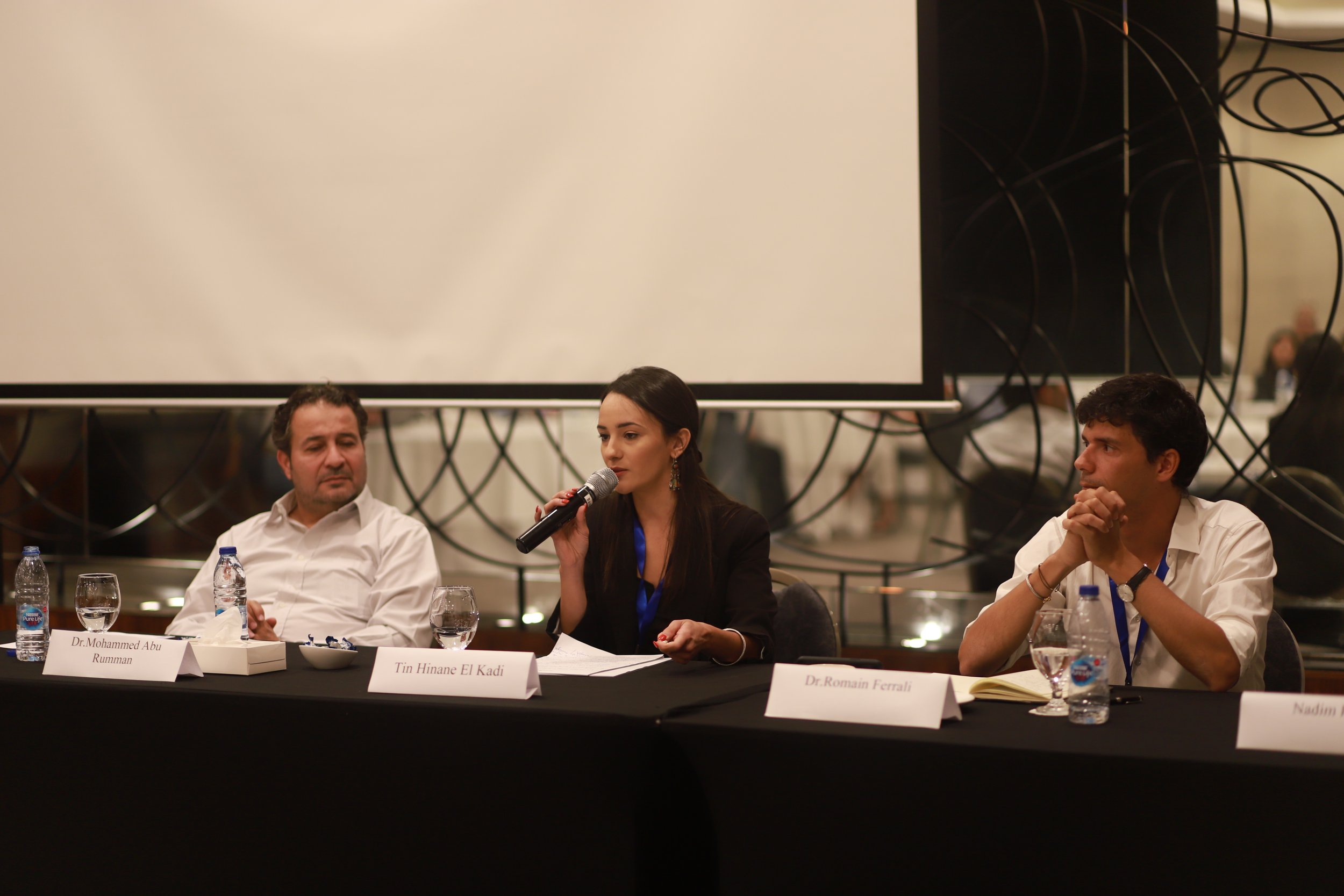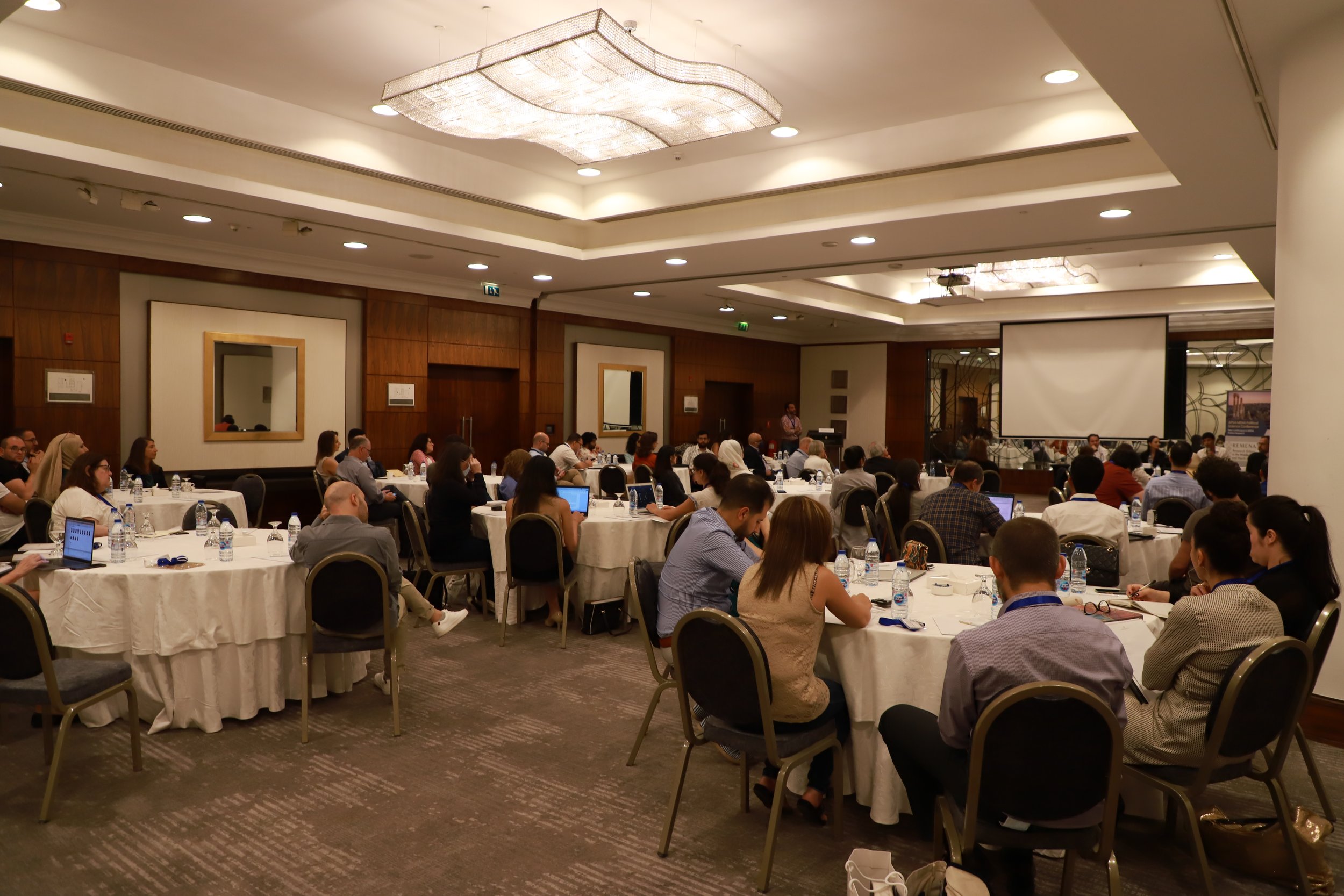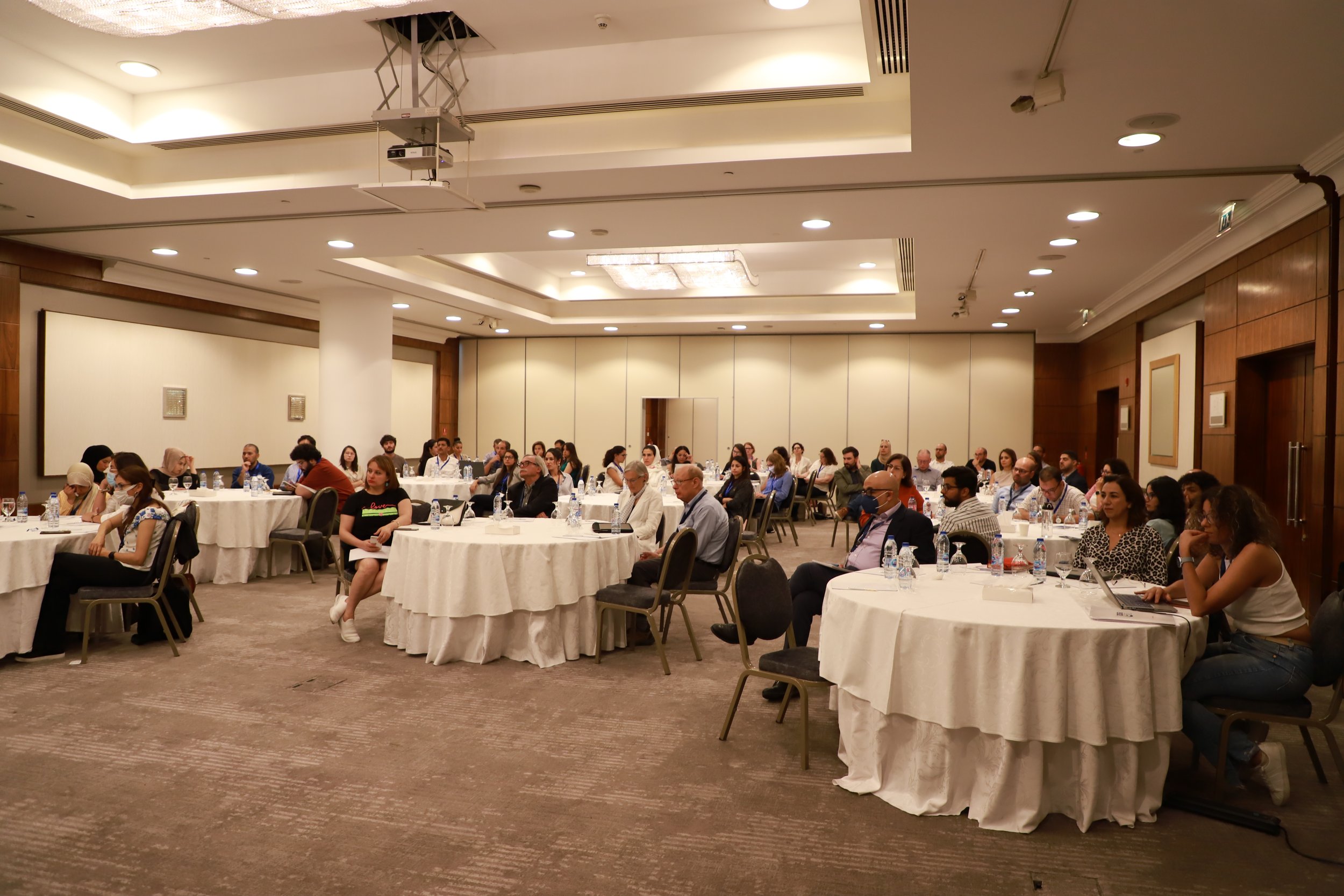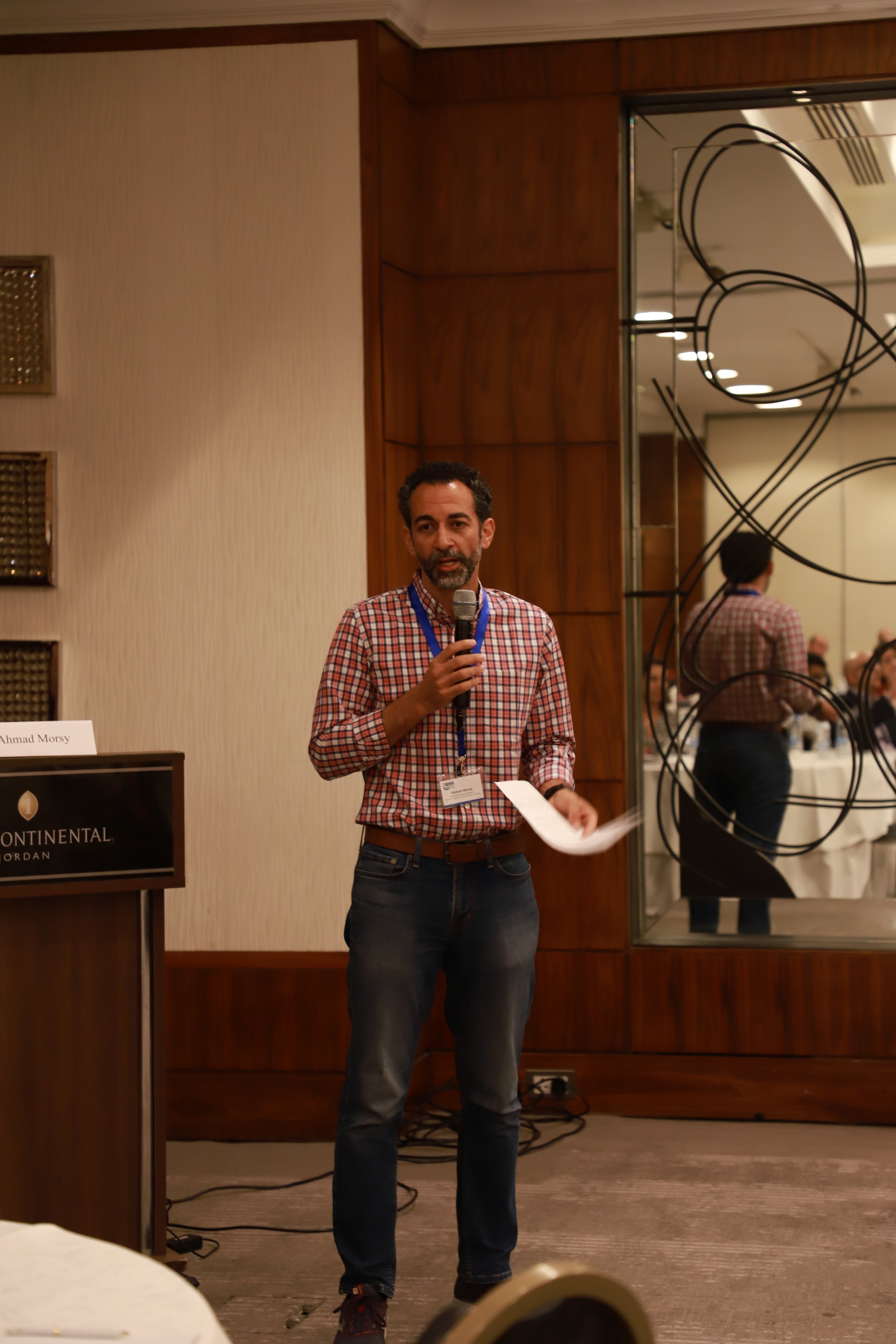
OUR EVENTS
Seminar Series: The Politics of Infrastructure in MENA
Seminar Series | January - May 2024
The Arab Political Science Network (APSN) in partnership with the Center for Economic, Legal, and Social Studies and Documentation (CEDEJ) are organizing a monthly seminar series titled: The Politics of Infrastructure in the Middle East and North Africa. The series runs once a month between January and May 2024, and organized in a hybrid mode via Zoom and in-person at the CEDEJ office in Cairo.
Each session focuses on a theme and features up to three speakers who share their research and engage in an open discussion with participants. The meetings are in English, unless otherwise noted. Faculty members, graduate students, and researchers interested in infrastructure are encouraged to sign up and join the conversation.
Session Dates and Themes
Session 1: January 16, 2024
Time: 4-5:30 pm Cairo / 9-10:30 am EST
Theme: War, Destruction and Infrastructure
Session 2: February 13, 2024
Time: 4-5:30 pm Cairo / 9-10:30 am EST
Theme: Urban Infrastructure and Ecology
Session 3: March 4, 2024
Time: 4-5:30 pm Cairo / 9-10:30 am EST
Theme: Digital and Virtual Infrastructures
Session 4: April 16, 2024
Time: 4-5:30 pm Cairo / 10-11:30 am EST
Theme: Energy Infrastructure
Session 5: May 14, 2024
Time: 4-5:30 pm Cairo / 10-11:30 am EST
Theme: Transportation and Logistics Infrastructure
Digital Research Methods Training
Call for Applications
Digital Research Methods Training
Deadline: May 25, 2024
The Arab Political Science Network (APSN) in collaboration with Arabi Facts Hub (AFH) are pleased to announce a call for applications for Digital Research Methods Training.
The training program is aimed at researchers in the Arab world interested in the intersection of social science and disinformation research using digital research tools. The training will take place virtually via Zoom in June 2024 and the exact date of each training will be shared at a later date. The deadline for applications is May 25, 2024.
The short intensive program provides participants with foundational knowledge on the use of empirical methods and digital tools that are applicable for broad research use. The program offers participants the following training:
(R) language,
Network Analysis,
Web Scraping,
Textual Analysis,
Digital Ethnography and
Geographic Information Systems (GIS).
Each applicant can sign up for one or more training courses, but please note that R language is a prerequisite for Network Analysis, Textual Analysis and Web Scraping. The main language of instruction is Arabic.
All selected participants are expected to attend the full program, read assigned materials, actively contribute to the discussions, and participate in hands-on projects that are designed to provide them with experience utilizing these tools. At the conclusion of the program, participants will receive a certificate of attendance and will have an opportunity to complete a simple project and / or publish a short research analysis on a topic of relevance.
All interested applicants must complete the online form, and should be:
Student currently enrolled in a graduate-level program, OR
Researcher at a national or regional institute / center in an Arab country,
Knowledge of English is preferred,
Experience in R is not a must.
Selected applicants will be notified before the end of May 2024 and informed of the training dates. If you have any questions, please contact us at workshops@arabpsn.org
The Politics of Infrastructure in the Middle East and North Africa
The Arab Political Science Network (APSN) and the Center for Economic, Legal, and Social Studies and Documentation (CEDEJ) are pleased to organize this webinar that brings together three researchers working on various aspects of infrastructural politics.
Research Trends in Arab Politics
Roundtable sponsored by MESA Global Academy and the Arab Political Science Network
Saturday, November 4 | Montreal, Canada
This roundtable was a collaboration between the Arab Political Science Network (APSN) and the MESA Global Academy. It brought together four scholars specializing in political science and Middle East politics to discuss recent research and methodological trends, challenges pertaining to teaching and fieldwork in the Arab world as well as opportunities for collaboration between political science scholars in North America and MENA.
Participants:
Mimi Kirk, Organizer
Dr. Samer S. Shehata, Chair
Dr. Marwa Shalaby, Presenter
Dr. Omar Sirri, Presenter
Dr. Basileus Zeno, Presenter
Dr. Razan Ghazzawi, Presenter
Engaging Researchers and Enhancing Scholarship in the Arab World
The Arab Political Science Network (APSN) and the Arab Reform Initiative (ARI) organized a public meeting during the MESA Annual meeting in Montreal, Canada, titled “Engaging Researcher and Enhancing Scholarship in the Arab World.” The event discussed the opportunities and constraints for engaged scholarship, knowledge production and pathways for researchers to strengthen the influence of their scientific knowledge to contribute to better policy and research outcomes in Arab societies.
Attendees explored how scholarship about the Arab region can also be useful for people in the region. This included discussions on knowledge translation, participatory research methodologies, and public engagement. The participants also reflected on how research can be made relevant to non-academic communities, like activists and civil society actors, and to achieve policy influence.
The participants exchanged their experiences of engaged scholarship, the barriers encountered in trying to combat the extractive tendencies of academic research and publication, and how research can be leveraged to develop solutions to the most pressing civic, social, economic, and political problems the region faces today.
As part of the discussion, ARI and APSN presented their institutional experiences in the production and dissemination of knowledge; how scholars can get involved with both organizations and invited the attendees to reach out with ideas for possible collaborations.
Youth in / and Politics in the Arab World
the Arab Political Science Network (APSN) and the Arab Reform Initiative (ARI) are organizing a webinar on Youth in / and Politics that will bring together three researchers currently working on youth and social movements with a focus on Arab countries.
Where did the Opposition go: New (and Old) Forms of Opposition to Entrenched Authoritarianism in the Middle East and North Africa
The Arab Political Science Network (APSN) organized a roundtable discussion about New (and Old) Forms of Opposition to Entrenched Authoritarianism in MENA, on the sidelines of the annual Meeting of the American Political Science Association (APSA).
The Ethics of Social Science Research and Teaching in MENA
In conjunction with the ISA conference in Ifrane, the Arab Political Science Network (APSN) organized a roundtable titled: The Ethics of Social Science Research and Teaching in MENA.
Research Development Workshop 2023
This year’s workshop focused on Political systems and governance, Authoritarianism and political change, Identity Politics and Religion and Political economy and development in the MENA region.
Book Proposal Workshop - Part One
On May 11th, the Arab Political Science Network (APSN) and the Center for Lebanese Studies (CLS), organized the first of two parts of the Book Proposal Workshop.
Just Environmental Transitions in Arab Politics
The webinar aims to look at critical issues in the debate over the politics of the environment and climate change. It will highlight the power dynamics at play, the politics and politicization of the climate action for economic gains and the critical role of Arab scholarship in this field.
Research Methods Teaching Workshop
Teaching Research Methods in the Arab World
AUC, Egypt | 3 February 2023
Research methods and design is one of the most important and necessary courses for any student regardless of their discipline and the degree they are pursuing. Within social science, this course becomes even critical yet more challenging. Most research methods courses in political science seek to cover a wide range of critical issues from the basics and basis of social science research and types of methods (qualitative, quantitative, and multi/mixed methods) to research design (question(s), hypothesis, and literature review) and some applied exercises and tools.
Both students and faculty are challenged by many factors. The first is that in most political (and social) science departments, the methods course – while mandatory - is offered only once throughout the degree program. This puts tremendous pressure on the faculty to cover a big amount and wide range of theories and approaches as well as provide practical exercises and tools, while expecting the students to end the class with the necessary foundation to develop their research projects. Secondly, there are several practical challenges from the availability of and accessibility to reading materials, computer software and the potential language barrier of such resources, to the usually big number of students per class (especially at public universities). Finally, some faculty members are stuck with teaching relatively outdated research methods courses. This can be due to the slow bureaucratic and centralized mechanism to change these courses and/or the inadequate training of some faculty members who would be more reluctant to change a longstanding class description, readings, and method of delivery.
The 2023 teaching workshop is part of an ongoing interest and exploration of the challenges related to teaching research methods and design in the Arab world. More specifically, how the methodological approaches should adjust to the impact of the securitized public/research spheres, growing inter-disciplinarity of topics, and in some cases challenging access to teaching and research resources among other issues. The workshop brought together about 15 faculty members who are currently teaching undergraduate and/or graduate research methods courses at public or private institutions. The diverse participation (country, language, career level and type of course) enriched the discussion, helped identify common areas of challenges and highlight potential ways to overcome some of them.
Engaging Arabic Scholarly Works: Challenges and Opportunities
The Arab Political Science Network (APSN), organized a roundtable discussion titled: Engaging Arabic Scholarly Works: Challenges and Opportunities. The session took place at the Middle East Studies Association Annual Meeting in Denver, Colorado, on December 2 from 9:30 to 10:30 am.
The internationalization of research and knowledge production in the last two decades is yet to be transformed into an interconnected network across different regions of the world. Despite recent strides in higher education in the Arab world, knowledge production continues to suffer from weak institutionalization and fragmentation. Research practices remain plagued by limited funding opportunities, methodological rigor, access to resources and relevance to ongoing local and global debates.
Most Arabic academic work, journal articles and books, are limited in their circulation, accessibility, and rigorous review and lack reliable metrics to measure their influence and impact. This creates challenges in engaging with these outputs and their authors and leads to their original contributions going unnoticed. It also disincentivizes Arabic- speaking scholars outside the Arab world, from publishing in Arabic.
The roundtable brought together three scholars working on the Arab world to reflect on and discuss the challenges and opportunities of engaging Arabic academic outputs. Each of the three participants had up to 10 minutes to share their own experiences and suggest potential areas for increasing accessibility, rigor and measuring impact.
Urban Politics in the Arab Region
The study of urban politics and space in the Arab world continues to gain interest among scholars with different interdisciplinary backgrounds and experiences. In their work, they apply diverse social science and critical urban studies approaches to understand some of the dramatic changes affecting cities across the region.
Many of the cities and public spaces in the region share common historical, cultural, socio-economic, and political organizational structures. However, the changing nature of domestic politics, neoliberal economic pressures as well as growing acute inequalities, civil strife and aggravating environmental conditions are profoundly transforming their built environments.
The Arab Political Science Network (APSN) and The Beirut Urban Lab (BUL) at the American University of Beirut (AUB) organised a webinar focusing on the latest research and developments in the study of urban politics and space. The invited scholars discussed research focusing on the resilient and changing dynamics and configurations of power in cities and built environments of the Arab region. They also reflected on questions of power and contestation, representation, and appropriation of urban space among other issues.
Note: This event was held in English. The playlist is translated into Arabic.
The International Politics of Infrastructure and Everyday life
Infrastructures are an insignia of modernity. They provide the architecture for circulation of good, utilities, resources, and they also facilitate the connection of people, societies, and places across the globe. Infrastructures are generating the conditions in which everyday life unfolds. Through infrastructure imperial powers have integrated the Global South into the Global world economy. International relations, trade, and war are often animated by infrastructures, which remain crucial to contemporary geo-economic domination in the Global South. Scholars of Philosophy, Science and Technology Studies, Anthropology, Sociology, and Geography have examined how infrastructures are imbricated in social relationships, and by extension in politics and economics. Their findings are raising critical questions about actors and agency in a physical world, the perils and promise of infrastructure, and interlinkage of affects and materials.
To explore this concept further, the Arab Political Science Network (APSN) organized a webinar to discuss the growing interdisciplinary work linking the role of infrastructure to political and economic policies in the Global South. The event featured experts from the Infrastructure, International Politics and Everyday life in the Horn of Africa project that examines transregional relationships between the Arabian Gulf and the Horn of Africa through the lens of port infrastructures and transport corridors in the Red Sea and the Gulf of Aden.
Note: This event was held in English. The playlist is translated into Arabic.
National Identity(ies), Conflicts, and Minorities in Arab countries
The Arab Political Science Network (APSN) organized a roundtable to discuss the experiences of minority groups in nation-building and identity formation processes across the Middle East and North Africa region. Discussions around national identities and the place of minorities in nation building projects have been a longstanding controversial issue in the MENA region. On another level colonialism played a major role in identity formation in the MENA region by introducing itself as a protector of minorities. This has had a big impact on the discourse of minorities and nation building.
In this roundtable we ask: How does race and ethnicity affect processes of national identity formation in the region? How do different minority groups interpret these processes, negotiate their place in them, and push against some of their manifestations? The discussion will identify the role of politics, geography, and culture in shaping the place of minorities in the dialogue over national identity across the Arab countries. It will highlight the effects of political conflict, historical state-society dynamics, and geopolitical interests in the formation of national identities.
Panel Chair:
Nermin Allam
Assistant Professor of Politics at Rutgers University-Newark
Moderator:
Abdulwahab Kayyali
Independent Researcher and Consultant
Speakers:
Bessma Momani
Assistant Vice-President, Research and International, Office of Research
Full Professor, Department of Political Science, University of Waterloo
Romain Ferrali
Assistant Professor, Aix-Marseille School of Economics
Shamiran Mako
Assistant Professor of International Relations, Boston University
Tunisia's Political Transformation: Current Challenges and Future Perspectives
Tunisia's Political Transformation: Current Challenges and Future Perspectives
September 9-10, 2022
The Arab Political Science Network (APSN) in collaboration with the South Mediterranean University (SMU) in Tunisia organised an online workshop (September 9-10, 2022) titled Tunisia's Political Transformation: Current Challenges and Future Perspectives. The workshop brought together 14 PhD students and 6 discussants from Tunisia, Morocco, UAE, Egypt, Turkey, Italy, UK and the US.
The two-day program featured five panels, two in Arabic and three in English. Each author shared a short presentation about their paper followed by feedback from the assigned discussants and workshop participants. In the two Arabic sessions, papers looked at the growing populist politics in Tunisia, the impact of the changing political system and the new constitution as well as the current economic and financial crisis. In the three English sessions, authors focused on state-society dynamics, feminist mobilization over the past decade, online activism, and the changing role of the judiciary and parliament.
Research Agenda Stocktaking: Where do Regional Institutions Stand?
In conjunction with the American Political Science Association (APSA) Middle East and North Africa (MENA) conference titled New Landscapes in MENA Politics Research, the Arab Political Science Network (APSN) organized a panel featuring representatives from research and policy institutes in the Arab world. The panel examined the opportunities for and challenges to social science research from the perspective of regionally based institutes. This session complemented and contributed to the deliberations of the fellows, as well as other colleagues and researchers, participating in the conference.
The years following the Arab uprisings created renewed interest in research on issues from state-society dynamics and civil wars to regime/authoritarian resiliency and counterrevolutions. There has also been new research on mobilization and social media; the politics of gender and women; migration, displacement, and citizenship; and the intersections of politics, climate, and public health.
While considering these developments, as well as the often-inhospitable research climate across the region, the panelists (and attendees) are invited to reflect on:
- What kind / type of research agendas and ideas guide these research institutions? In what ways the COVID-19 pandemic, on-going civil strife across the region, increasingly authoritarian practices and the Ukraine war will impact research agendas and studies?
- What new priorities and realities should researchers and funders pay attention to?
- How can we utilize existing and advance new interdisciplinary approaches to help us understand and study some of these topics?
- How can we create and maintain supportive and collaborative networks of research, funding and mentoring that advances rigorous methodological and pedagogical training and publications?
Tin Hinane El Kadi is the co-founder and co-director of the Institute for Social Science Research on Algeria (ISSRA).
Romain Ferrali is an Assistant Professor of economics at the Aix-Marseille School of Economics.
Nadim Houry is the executive director of the Arab Reform Initiative (ARI).
Mohammad Abu Rumman is the founder and academic advisor of the Politics and Society Institute in Amman.
First Summer School on Quantitative Methods
The Summer School is an intensive short program that provides students with foundational knowledge on the use of quantitative empirical methods in the political science and international relations.
Research Development Workshop 2021
This year’s workshop focused on Nation-Building, Economic-Transformation and Populism in the MENA Region.
Teaching Political Science in/on Africa: Where Do We Stand?
How do scholars of political science in Africa teach the discipline? What are the main research agendas or topics that interest African scholars and how are they tackled around the continent? In this webinar, the panelists shed light on the interests, priorities, and challenges facing political science research and teaching in/on Africa. In a much challenging political, economic, and social climate that engulfs different countries across the continent, this discussion comes as an opportunity to reconnect with the discipline and one another.
The webinar examined how Africa is situated within global political science debates while exploring opportunities for decolonizing the discipline and offering new voices and approaches.
This webinar was organized by the Arab Political Science Network in collaboration with the African Association of Political Science.
Situating the Lebanese Uprising: Revolution, Transformation, and (De)Mobilization
The volume aims to place the revolutionary experience of Lebanon within regional and global processes including the so-called Arab Spring, and makes an important contribution to the study of uprisings in neoliberal contexts. Dr. Mourad described the volume as “not just an encapsulation or a documentation of the uprising, but a volume that is itself part and parcel of the revolutionary moment and thinking around it in Lebanon.”
Local Governance in the Arab World: Cases and Experiences
This webinar aims to shed light on the dynamics of local governance across the MENA region and the myriad challenges that continue to face decentralization processes in transitioning and highly centralized Arab states.
Teaching International Relations in the Arab World
This webinar will address questions related to the teaching International Relations (IR) in the Arab world and if there are unique circumstances, contexts or approaches that defines and shapes our study of political science and its sub-disciplines in the region.
Researching Arab Americans
A webinar on researching and teaching about Arab Americans in the United States
Higher Education and Policymaking in the Arab World
A conversation and book discussion with Professor and former AUB president John Waterbury.
Teaching Gender Politics in the Middle East
Workshop on Teaching Gender and Women Politics in the Middle East.
Gender and Feminist Studies in the Arab World
A webinar on teaching gender studies and politics in the Arab world.
Research in Pandemic Times
A webinar discussing the results of a survey on the impact of COVID-19 on MENA scholars.
Research Development Workshop 2020
Due to the uncertainty and risks posed by the COVID-19 pandemic, APSN decided to cancel this workshop and offer virtual feedback sessions.
Teaching International Relations in/on the Middle East
Workshop on Teaching International Relations in/on the Middle East.
Arab Scholars and Politics During Times of Uncertainty
Panel at the 2019 MESA Conference discussing research on Arab scholars and politics during time of uncertainty
Submit an Event
Got an interesting event that you would like for us to share or collaborate on? Submit it here.
